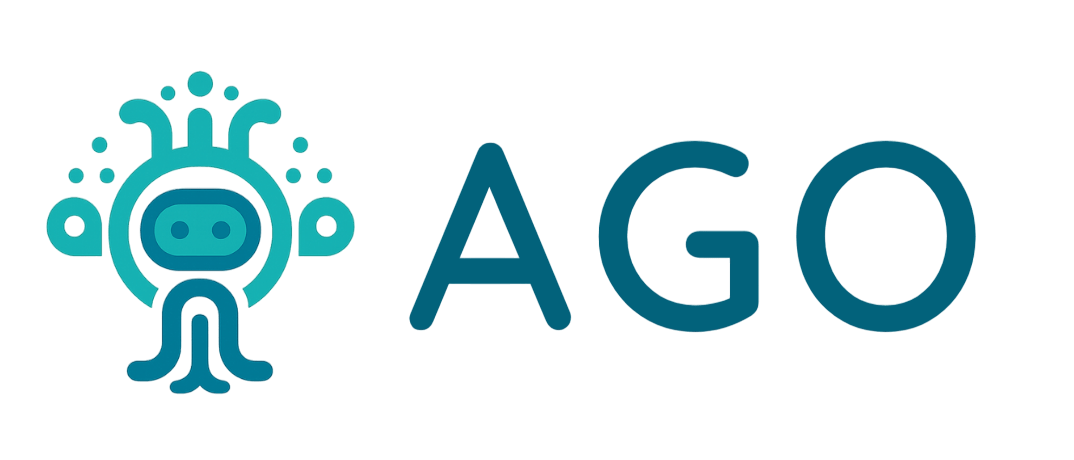Building powerful AI systems requires two key components: tools (integrations with APIs, search capabilities, and custom actions) and agents (the AI entities that use those tools to accomplish tasks).
The Problem: AI Agent Management Doesn't Scale
As AI systems grow, you often need to create multiple agents and tools. In a typical agent deployment, you have:
- HTTP tools for different API endpoints
- various knowledge bases for the business context
- Custom integrations for specific business systems
AGO already provides two ways to create these:
- The web UI: Great for non-developers who want a visual interface to click through forms
- REST APIs: For developers who want to automate deployments with custom scripts
Managing these manually through a web interface can be tedious and error-prone, especially as the number of agents and tools increases.
Now, with MCP (Model Context Protocol) support, creating agents inside AGO becomes dramatically simpler. Just connect Claude Code or any MCP client to your AGO instance, and you can create, update, and explore both tools and agents using natural language, no scripts required.

Real-World Use Cases
One of the most powerful use cases is integrating AGO directly into Claude Code or any MCP-compatible personal AI assistant.
Add AGO's MCP server to Claude Code:
claude mcp add --transport http ago http://your-server.com/api/mcp \
--header "X-API-KEY: YOUR_API_KEY"It makes it way easier to build any agent or tool
Let compare what we need to do when we Build a Returns Agent
Traditional approach:
- Log into AGO dashboard
- Navigate to Tools → Create HTTP Tool
- Configure order lookup endpoint
- Navigate to Tools → Create another HTTP Tool
- Configure return processing endpoint
- Navigate to Tools → Create another HTTP Tool
- Configure refund endpoint
- Navigate to Agents → Create New Agent
- Select the three tools from dropdowns
- Write the agent prompt
- Configure knowledge sources
- Test and debug
With MCP in Claude Code you just need a prompt:
Create a returns processing agent that can:
- Look up orders from api.example.com/orders/{id}
- Process returns via api.example.com/returns
- Issue refunds through api.example.com/refunds
The agent should verify order eligibility before processing returns and explain the process to customers.
Claude:
- Creates three HTTP tools with the correct configurations
- Creates an agent with an appropriate prompt
- Assigns all three tools to the agent
- Suggests test cases to validate the setup
Result: from 12 manual steps to a single conversation.
Some other examples:
Create tools:
"Create an HTTP tool that connects to our payment API at api.payments.example.com"
Update configurations when systems change:
"The user search endpoint changed its schema. Update the search_users tool to match the new spec."
Explore your infrastructure:
"What agents do we have configured and what tools do they have access to?"
This is AI building AI infrastructure. You're not manually configuring each component, you're having a conversation about business requirements, and Claude translates that into working AI systems.
Self-Improving Systems
This opens up many possibilities:
- Agents that extend themselves: An agent could identify missing capabilities and request new tools
- Infrastructure as conversation: Entire customer service workflows defined through natural language
- Rapid prototyping: Test new agent configurations in minutes instead of hours
- Version control for AI: Describe changes in commits, Claude implements them programmatically
What's Supported in this Release
The MCP server's endpoint at /api/mcp provides capabilities for both tools and agents:
Managing Tools
Execute full CRUD operations on your tool catalog:
- list_tools: Filter and search through your tools
- get_tool: Retrieve detailed configuration for a specific tool
- create_tool: Programmatically create new tools (HTTP, search, custom integrations)
- update_tool: Modify existing tool configurations
- delete_tool: Remove tools you no longer need
Managing Agents
Execute full CRUD operations on your AI agents:
- list_agents: Browse all configured agents
- get_agent: Retrieve detailed agent configuration including assigned tools, knowledge sources, and prompts
- create_agent: Create new AI agents with specific capabilities
- update_agent: Modify agent configurations, swap tools, adjust prompts
- delete_agent: Remove agents you no longer need
What's Next
The MCP API for tools and agents is just the beginning. We're working on:
- Advanced analytics on agent and tool performance
- Multi-agent orchestration: Define complex workflows involving multiple specialized agents
Ready to build AI systems conversationally? The MCP API is available now for all AGO customers. Connect Claude Code to your AGO instance and enjoy creating agents and tools with ease.




